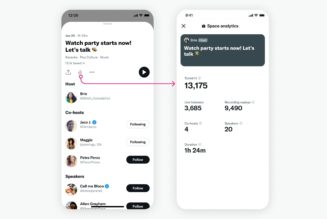In Wuhan, China, when the rate of coronavirus infection was at its highest, doctors were able to use an AI algorithm to scan the lungs of thousands of patients.
The algorithm in question, developed by Axial AI, analyses CT imagery in seconds. It is able to declare whether a patient has a high risk of developing viral pneumonia from the coronavirus or not.

The BBC writes that a consortium of firms developed the AI in response to the COVID-19 outbreak. They say it can show whether a patient’s lungs have improved or worsened over time – when more CT scans are done for comparison.
A hospital in Malaysia is now trialling the system and Axial AI has also offered to donate it to the NHS in the UK. However, there has not been a response from the Department of Health and Social Care (DHSC) to confirm whether the AI system is going to be used in UK hospitals or not.
/* custom css */
.tdi_3_62a.td-a-rec-img{ text-align: left; }.tdi_3_62a.td-a-rec-img img{ margin: 0 auto 0 0; }
X-Rays Also Scanned by AI
Since CT scans are used in the UK far less than x-rays, a few British hospitals are now rolling out AI tools to help medical staff interpret chest X-rays more quickly. For instance, the staff at the Royal Bolton Hospital are using AI that has been trained on more than 2.5 million chest X-rays, including around 500 confirmed COVID-19 cases.

This algorithm has been running automatically on every chest X-ray the hospital has carried out for about a week, says Rizwan Malik, a radiology consultant at the hospital. This means more than 100 patients will have had X-rays analysed by the system to date, he estimates.
In this case, it is in patterns of opacity in the lungs that the AI uses to declare signs of COVID-19.
“It basically gives clinicians another tool to help them make decisions – for example, which patients they’ll admit, which they’ll send home,” says Dr Malik, who notes that patient data is processed entirely within the hospital’s own network. The software itself was developed by Mumbai-based Qure.ai.
This process would also be very useful in South African hospitals, as there is a distinct lack of CT machines and x-ray machines are more prevalent. The use of an algorithm taking a look at every chest x-ray performed in a hospital would greatly increase the chances of diagnosing a person with COVID-19.
As of now, South Africa has 7220 total recorded cases, about 4300 of those are active cases with more than 2700 recoveries. 138 people have lost their lives to the virus.
Edited by Luis Monzon
Follow Luis Monzon on Twitter
Follow IT News Africa on Twitter
/* custom css */
.tdi_4_eb5.td-a-rec-img{ text-align: left; }.tdi_4_eb5.td-a-rec-img img{ margin: 0 auto 0 0; }








